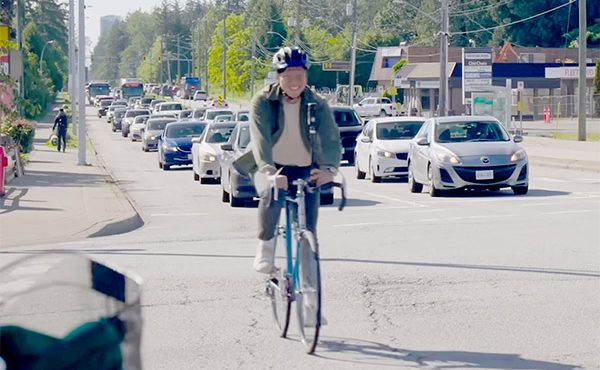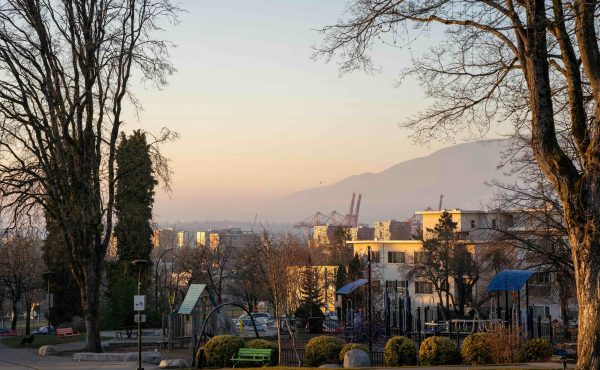

Special Feature by Sam Sullivan
On Wednesday, June 6, 300 delegates will attend the Vancouver Urban Forum to discuss the theme “achieving urban densification”. Although most of the delegates will be local, there will also be people from as far away as Albania, Australia, Bangladesh, Colombia as well as from cities across Canada. An outstanding lineup of speakers will be led by Harvard Prof. Edward Glaeser, author of Triumph of the City.
Prof. James Lightbody of the University of Alberta will describe the three waves of urban reform that have swept Canada since its founding. The Vancouver Urban Forum will be conscious that a fourth wave is expected to bring fundamental changes to our cities and many of the presentations will consider what these might be.
Alan Broadbent, founder of the Maytree Foundation and the Caledon Institute of Social Policy and author of Urban Nation, will lay out the development of our cities and why they need a new deal. He will also describe the electoral under-representation of our urban areas noting that if every voter in Canada were equal, there would be 50 more urban Members of Parliament out of the current 308. Is it possible that the electoral equality would change not only the nature of the political discourse but the very topics that get discussed?
Prof. Edward Glaeser is the world’s most respected urban economist and he will lay out where he believes Jane Jacobs got it right and where she got it wrong. He will describe the importance of densification for housing affordability and lay out the connection between density and prosperity.
Prof. Max Cameron, Director of the Center for the Study of Democratic Institutions, will present his ideas on an overhaul of the structure of municipal government and especially of the public hearing process that determines land-use decisions. Can the “separation of powers argument” developed by Aristotle and Montesquieu provide guidance?
The last wave of urban reform hit Canada in the 1960s. It ushered in what textbooks refer to as the period of “Suburban Domination”. At that time, environmentalism saw the ideal as living close to the land. Since then a new biological scientific approach that measures actual environmental impact has shown this has led to the most environmentally destructive urban form in human history. A World Bank study indicates that some suburbs of Toronto create 10 times as much greenhouse gas per person as the high density inner core. And they can take up to 50 times more land to accommodate the same amount of people.
Some believe that a new wave of urban reform will bring a new approach to urban planning. In the 1960s there was a legitimate debate about whether society should be organized through central planning or through a regulated market. Since the fall of the Berlin Wall in 1989, central planning has been seen to deliver less social justice, less prosperity and less environmental responsibility. Should we strive for a more spontaneous and less intentional city? Can the market deliver a more organic growth? Should we allow our design professionals more freedom to innovate? Have the “participatory processes” developed since the 1960s delivered us sprawl, high housing prices and social segregation?
Prof. Matthew Soules will present his hypothesis that the declining deaths by conflict in the world is related to increasing urbanization and that we may be headed to a new “Pax Metropolitana”. He might consider the thesis written against the high-rise tower by Mohammed Atta for his Master’s Degree in Urban Planning at the University of Hamburg just before piloting the plane on 9/11.
Aldyen Donnelly will present her arguments that density is far more important than energy prices in reducing energy use while Dan Zack, an urban planner from California will deliver his “Delightful Density” presentation that has been wowing citizen groups in that State. Gil Penalosa, a former municipal leader from Bogotá and current Director of Cities 8-80 will make the link between density and walkability.
The presence of several Mayors from Bangladesh will lead delegates to consider the question — should cities that are threatened by climate change seek status at North American public hearings that consistently thwart density and promote sprawl? Might this help municipal leaders and citizens recognize that their local decisions have international consequences?
The Vancouver Urban Forum is produced by the Global Civic Policy Society and its Center for Fourth Wave Urban Reform. It seeks to expand the dialogue on urban issues and develop new techniques to introduce ideas to the public. Delegates will be encouraged to contribute comments and questions through its “Twitter Table” or “Twable” as it is affectionately known whose operators will provide a more interactive event. There are limited sponsorships available to students and unaffiliated citizens. For more information www.vancouverurbanforum.org.
***
Spacing Vancouver will be reporting on Vancouver Urban Forum, so be sure to stay tuned!
**
Sam Sullivan is the founder of the Global Civic Policy Society and the Vancouver Urban Forum and is an Adjunct Professor at the UBC School of Architecture and Landscape Architecture. He is a Member of the Order of Canada and created the EcoDensity Initiative when he was Mayor of Vancouver.



One comment
Hey I’m an urban thinker. Why wasn’t I picked?